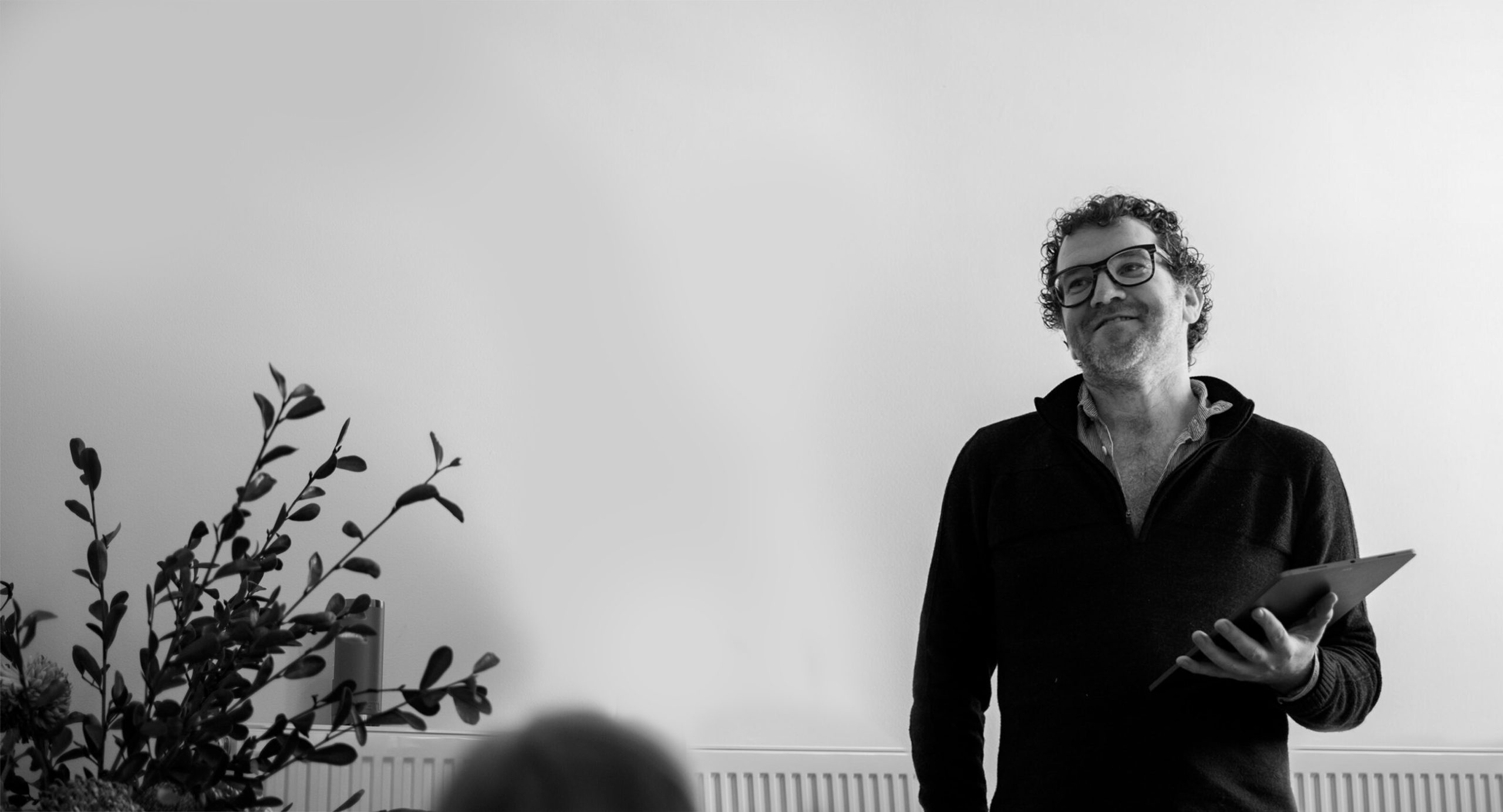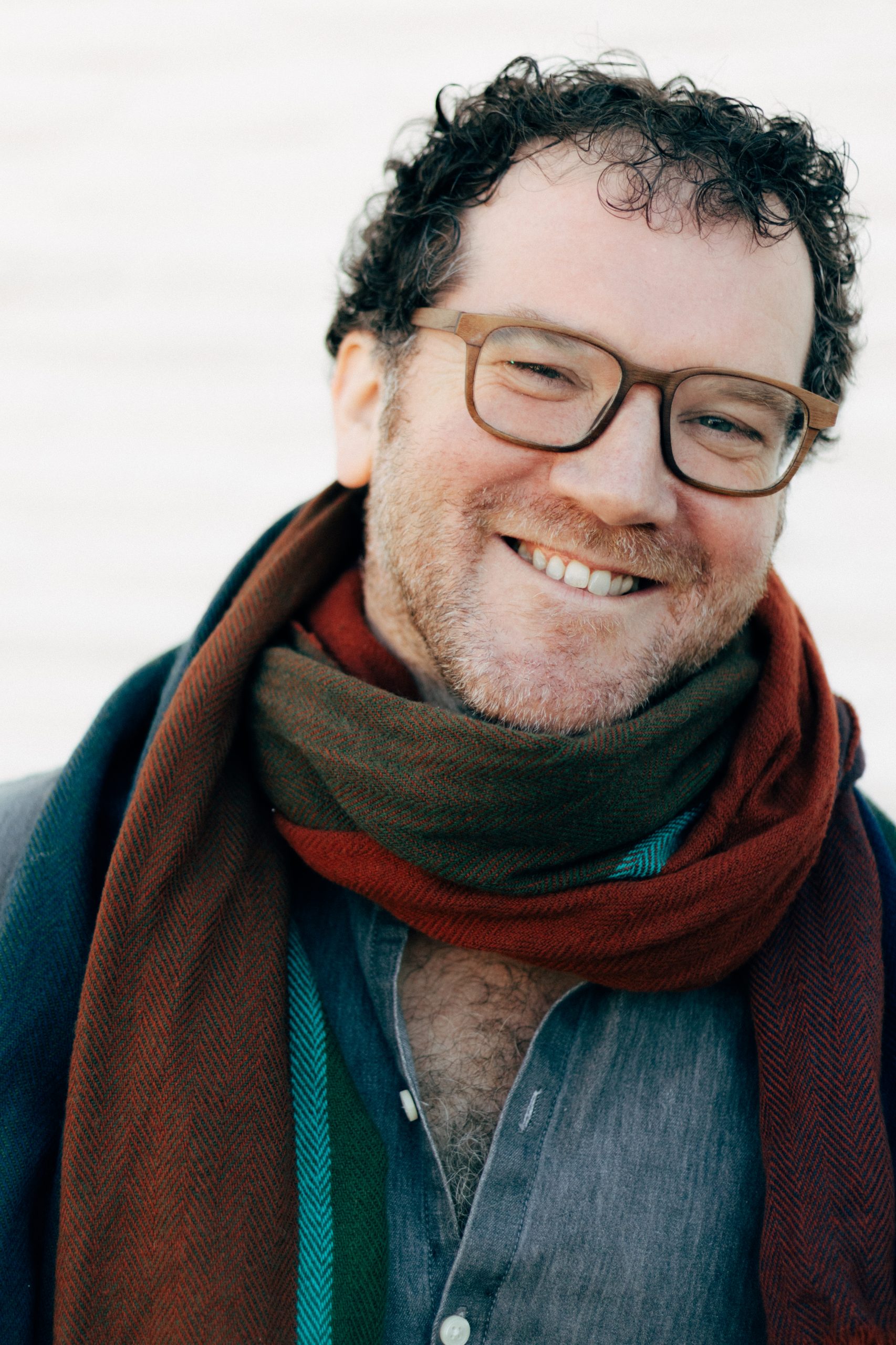
Strange Stories of the Bible
A poet’s guide for peculiar stories about the human condition.
With Pádraig Ó Tuama
Why did the writers who wrote texts that we now call biblical write those stories? What did they know about the human condition? What were their artistic interests?
Following on from last year’s exploration of Noah, Mary, Ruth and others, Pádraig Ó Tuama returns in November 2024 with more Strange Stories of the Bible. His interests are literary, and artistic: Why did the writers who wrote texts that we now call biblical write those stories? What did they know about the human condition? What were their aesthetic interests?
We hear origin stories all the time: origins of a country, of a population, of a group. Often the later re-telling of an origin story makes it seem far more comprehensive than its original messiness. The Garden of Eden is a twice-told story of agriculture, misunderstanding, resistance and consideration. It seems obvious that the story demanded those characters to eat the forbidden fruit (was it a grape, or a banana?)
The stories told are often used today to imply moral exemplars. Ha! Let’s look at the brilliance of Tamar, and see a civic exemplar, yes, but she was willing to use whatever she could to ensure her survival. Cancellation, Fake News and Talking with the Dead. All old stories. All today’s ones too.
For this series of explorations of strange stories, join me for a class in reading the bible as literature. For November 2024, we will take five stories of the bible:
- Beasts of Eden: Eve and Adam in a Strange Garden
- Tamar: Sex Work and a Quiet God
- The Cancelled Prophet, Jeremiah and His Tears
- Jesus and the Pharisees: First Century Fake News
- Meeting A Dead Friend: Resurrection and Encounter
Whether you know these stories well or are coming to them fresh, this series of five classes will open new literary doors into these archetypal stories. This class is not affiliated with, nor does it presume, any religious commitment. It is not an invitation to go into spirituality or prayer or religious membership. This series simply explores the brilliance — and sometimes brutality — of this world literature. Each class will take a close reading of a text, and then explore that through literary analysis, contemporary poetry, questions for self reflection and art.
Classes will be from 5pm-6.30pm Eastern Time (10pm-11.30am GMT; 2pm-3.30pm Pacific Time), on the following Sundays: Nov 3, 10, 17, 24 and Dec 1. The classes will be via a Zoom seminar, and can be streamed live, or viewed later. Chat will be open during the class, but participants’ cameras will not be on. Questions will be shared via a moderator. If you miss a class, you can catch up; classes will be recorded.
DETAILS
Virtual Classes with Pádraig Ó Tuama
(5 Zoom classes to attend in person or watch later)
Dates
Nov 3, 10, 17, 24 and Dec 1
Time
5pm-6:30pm Eastern Time
Cost
$175 USD*
*Pádraig makes some of his living doing retreats and seminars. Many of these are free and there are many online already. However, in order to keep bread on the table for the artist, some events are costed and don’t have free or tiered payments. This is one of those events. If you’re keen to join, but not able to afford it, maybe a friend is joining and you can share, or sneak into their living room or feed. (We won’t tell!)
Ó Tuama has become a shepherd in the shambolic tradition of contemporary spirituality, treating poetry as a form of agnostic prayer. “My interest in prayer is where it comes from, not where it’s going,” he told me. “The heart, rather than God.” Poetry, for him, is the language the heart speaks not when it reaches for some externalized divinity but when it seeks to understand itself.
Eliza Griswold, The New Yorker, December 2022

Pádraig Ó Tuama
Pádraig Ó Tuama is a poet, conflict mediator and theologian from Ireland.
He holds degrees (BA Div and MTh) in theology, with a focus on literary readings of religious texts; and a PhD in Creative Writing and Theology from the University of Glasgow. He lives between Belfast and New York, and travels widely giving retreats and lectures.
He presents Poetry Unbound with On Being Studios, which has amassed over ten million downloads since 2020. Poetry Unbound; 50 Poems to Open Your World was released by Canongate Books in late 2022. Profiled in The New Yorker, with poems in Poetry ireland, the New England Review, the Harvard Review and more, his latest collections of poetry are Kitchen Hymns and Being Here: Prayers for Curiosity, Justice, and Love.
